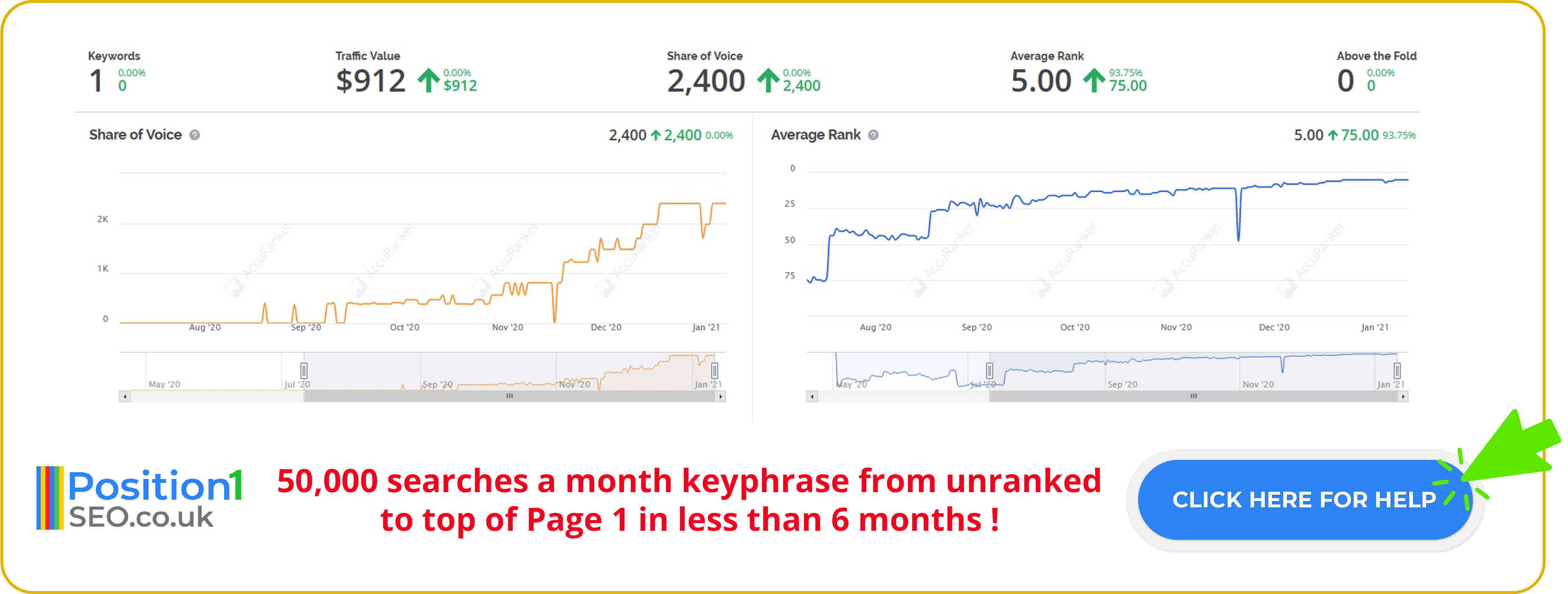
In the dynamic realm of digital marketing, navigating the intricacies of SEO (Search Engine Optimization) is crucial to achieving online success. Two fundamental aspects that often take center stage in this quest for higher search engine rankings are on-page and off-page audits. These auditing methodologies are akin to the twin pillars supporting the edifice of your online presence, each playing a unique role in shaping your website's performance and visibility. So, what exactly sets them apart, and how can understanding their distinctions empower you to craft a more effective SEO strategy? Let's delve into the world of on-page and off-page audits to uncover the differences that can make all the difference in your online pursuits.
This page supports our content about on-page search engine optimisation analysis and you can find other in-depth information about How do I create a report for a client by following this link or answers to related questions like How to do an audit for beginners if you click here.

Before we delve into the FAQs surrounding on-page search engine optimisation analysis, let's ensure we have a solid grasp of the fundamentals.
The effectiveness of on-page or off-page organic search optimization depends on your specific goals and needs. Both have their merits and play essential roles in improving your website's performance. It's crucial to strike a balance and allocate your budget wisely for a comprehensive strategy tailored to your unique requirements.
The importance of on-page versus off-page optimization varies based on your website's objectives and current performance. While on-page factors are crucial for content relevance and user experience, off-page elements, such as backlinks and social signals, contribute to authority and credibility. A well-rounded strategy that considers both aspects is typically more effective in achieving long-term success for your website.
An example of on-page SEO would be optimizing the content and structure of your website's individual pages to enhance user experience and improve search engine rankings. This could involve keyword optimization, meta tags, header tags, and ensuring mobile-friendliness, all aimed at making your web pages more appealing to both users and search engines.
Backlinks, also known as inbound links or incoming links, are hyperlinks from other websites that point to your webpage. They serve as a vote of confidence or endorsement from one website to another. In the context of webpage optimization, acquiring high-quality backlinks from reputable sources can improve your website's authority and credibility, ultimately benefiting its search engine rankings and online visibility.
An off-page checklist in the context of an SEO page audit comprises a list of tasks and strategies aimed at improving a website's visibility and authority beyond its actual web pages. This checklist often includes activities such as building high-quality backlinks, engaging in social media marketing, managing online reviews, and enhancing online brand presence. By completing these off-page checklist items, you can strengthen your website's overall online presence and reputation, which can positively impact its search engine rankings and organic traffic.
To audit a page in the context of an SEO page audit means to systematically evaluate and analyze various on-page and off-page elements of a web page. This process helps identify areas for improvement in terms of content quality, relevance, technical aspects, and overall optimization. The goal is to ensure that the page aligns with best SEO practices, ultimately enhancing its performance in search engine rankings and user experience, and maximizing its potential impact on your online presence.
Yes, off-page optimization remains a vital component of webpage optimization. It involves activities such as building backlinks, managing online reputation, and engaging with external platforms to enhance your website's authority and credibility. Effectively implementing off-page strategies can significantly impact your website's search engine rankings and overall online presence, making it a crucial aspect of SEO.
Off-page optimization is essential because it plays a pivotal role in building your website's authority and credibility on the internet. By acquiring high-quality backlinks from reputable sources, engaging in social media marketing, and managing online reviews and mentions, you enhance your website's reputation in the eyes of search engines and users. This, in turn, can lead to improved search engine rankings, increased organic traffic, and ultimately, a stronger online presence. The investment in off-page optimization can yield substantial long-term benefits for your website's success and visibility, making it a fundamental aspect of webpage optimization.
On-page optimization is crucial because it directly impacts the quality and relevance of your webpage's content, making it more appealing to both users and search engines. By optimising factors such as keyword usage, meta tags, and user experience, you improve your website's chances of ranking higher in search results. This can lead to increased organic traffic and, ultimately, better conversion rates and revenue generation for your business. Investing in on-page optimization is an essential component of an effective SEO page audit and can deliver valuable returns in terms of website performance and profitability.
SEO ranking factors are various elements and criteria that search engines use to determine the position of a webpage in their search results. These factors include but are not limited to:
These factors collectively influence how search engines perceive and rank your website, and a comprehensive SEO page audit aims to assess and improve these elements to enhance your site's performance in search results.
Content Quality: High-quality, relevant, and engaging content is crucial for SEO success.
Keyword Usage: Effective use of keywords in content, headings, and meta tags.
User Experience: Ensuring that your website is easy to navigate and mobile-friendly.
Backlinks: The quantity and quality of websites linking to your pages.
Page Speed: Faster-loading pages tend to rank better.
Technical SEO: Optimizing technical aspects such as site structure, schema markup, and XML sitemaps.
Social Signals: The impact of social media engagement and mentions on your rankings.
User Behavior: Metrics like click-through rates and bounce rates can influence rankings.
Local SEO: For businesses targeting specific geographic areas.
On-Page SEO: Optimizing individual pages for keywords and user intent.
White hat SEO and black hat SEO represent two contrasting approaches to organic search optimization:
In the context of a page-specific organic search optimization inspection, it's essential to focus on white hat SEO practices to ensure the sustained growth and integrity of your website while avoiding the risks associated with black hat methods.
White Hat SEO: This is the ethical and legitimate approach to SEO. It involves following search engine guidelines and best practices to improve a website's rankings. White hat techniques focus on creating high-quality content, optimizing for user experience, and building genuine, quality backlinks. While it may take longer to see results, it ensures long-term sustainability and avoids penalties from search engines.
Black Hat SEO: Black hat SEO employs unethical and manipulative tactics to try to achieve quick but short-lived gains in search rankings. These tactics can include keyword stuffing, cloaking, link spamming, and other strategies that violate search engine guidelines. While black hat techniques may provide temporary boosts in rankings, they often lead to penalties, loss of credibility, and long-term damage to a website's reputation.
To perform on-page optimization as part of a SEO page audit, follow these key steps:
By diligently implementing these on-page optimization techniques, you can enhance your webpage's search engine visibility and user experience, ultimately leading to improved organic traffic and potential revenue growth for your website.
Keyword Research: Identify relevant keywords and phrases related to your content and target audience.
Content Creation: Develop high-quality, informative, and engaging content that incorporates your chosen keywords naturally.
Title Tags: Craft compelling and descriptive title tags that include your primary keyword.
Meta Descriptions: Write concise and persuasive meta descriptions that entice users to click on your search result.
Header Tags: Use header tags (H1, H2, H3, etc.) to structure your content and incorporate keywords where relevant.
Image Optimization: Ensure images are appropriately sized and include descriptive alt text.
Internal Linking: Link to other relevant pages within your website to improve navigation and user experience.
Mobile Optimization: Ensure your pages are mobile-friendly for a seamless user experience on all devices.
Page Speed: Improve page loading times for better user satisfaction and search engine rankings.
Schema Markup: Implement structured data to enhance how search engines understand your content.
URL Structure: Create clean and descriptive URLs that include keywords when applicable.
User Experience: Focus on providing a user-friendly and accessible website design.
To increase your Google page rank, you should focus on a combination of both on-page and off-page optimization techniques. On-page optimization involves optimizing your webpage's content and structure, ensuring it's relevant and user-friendly. Off-page optimization includes building high-quality backlinks, managing online reputation, and engaging with external platforms to enhance your website's authority.
By implementing both on-page and off-page SEO strategies, you can create a comprehensive approach that improves your website's search engine ranking, increases its online visibility, and drives organic traffic. Investing in these practices can lead to higher Google page ranks and a stronger online presence, ultimately benefiting your website's performance and profitability.
 In conclusion, a well-rounded understanding of on-page and off-page audits is pivotal in the world of SEO. Armed with this knowledge, you can navigate the intricate landscape of digital marketing more effectively, making informed decisions to enhance your website's visibility and performance. By answering the question, What is the difference between on-page and off-page audits? you've taken the first step towards crafting a robust SEO strategy that can propel your online presence to new heights. So, whether you're a seasoned marketer or just starting your journey, remember that these auditing methodologies are the cornerstones of online success, and mastering them can make all the difference in your pursuit of higher search engine rankings and improved website performance.
In conclusion, a well-rounded understanding of on-page and off-page audits is pivotal in the world of SEO. Armed with this knowledge, you can navigate the intricate landscape of digital marketing more effectively, making informed decisions to enhance your website's visibility and performance. By answering the question, What is the difference between on-page and off-page audits? you've taken the first step towards crafting a robust SEO strategy that can propel your online presence to new heights. So, whether you're a seasoned marketer or just starting your journey, remember that these auditing methodologies are the cornerstones of online success, and mastering them can make all the difference in your pursuit of higher search engine rankings and improved website performance.

Ready to take your SEO strategy to the next level? Contact Position1SEO today at 01414 047515 and let us unravel the nuances of on-page and off-page audits for your online success.
Free Quote.
Free SEO Audit.
Free Conversion Advice.

Page 1 Guarantee or We Work for FREE !

Page 1 Guarantee or We Work for FREE !

| Cookie | Duration | Description |
|---|---|---|
| cookielawinfo-checkbox-analytics | 11 months | This cookie is set by GDPR Cookie Consent plugin. The cookie is used to store the user consent for the cookies in the category "Analytics". |
| cookielawinfo-checkbox-functional | 11 months | The cookie is set by GDPR cookie consent to record the user consent for the cookies in the category "Functional". |
| cookielawinfo-checkbox-necessary | 11 months | This cookie is set by GDPR Cookie Consent plugin. The cookies is used to store the user consent for the cookies in the category "Necessary". |
| cookielawinfo-checkbox-others | 11 months | This cookie is set by GDPR Cookie Consent plugin. The cookie is used to store the user consent for the cookies in the category "Other. |
| cookielawinfo-checkbox-performance | 11 months | This cookie is set by GDPR Cookie Consent plugin. The cookie is used to store the user consent for the cookies in the category "Performance". |
| viewed_cookie_policy | 11 months | The cookie is set by the GDPR Cookie Consent plugin and is used to store whether or not user has consented to the use of cookies. It does not store any personal data. |
